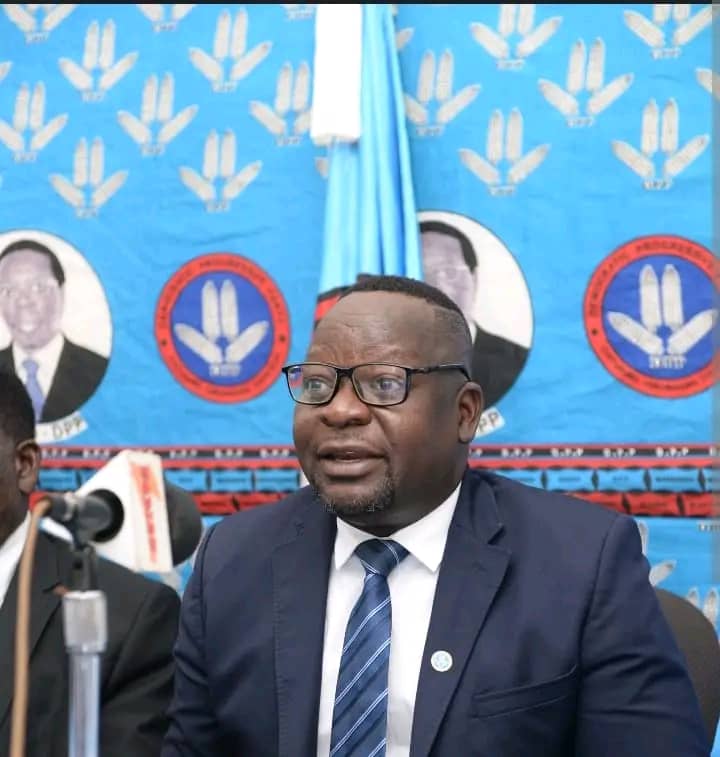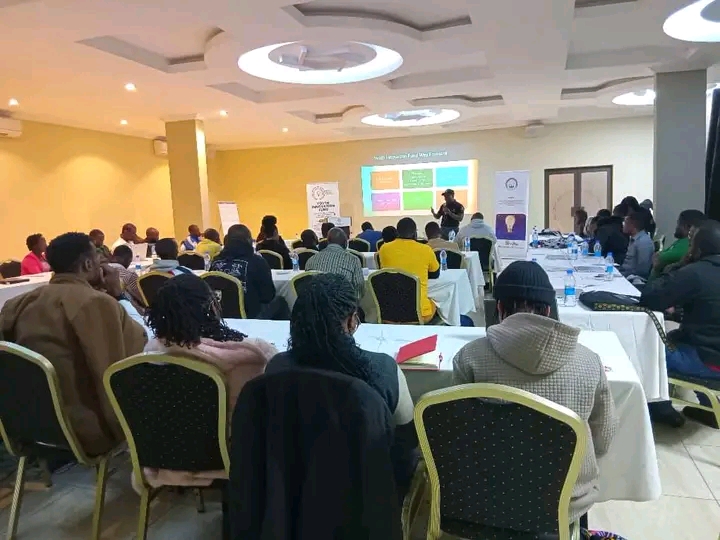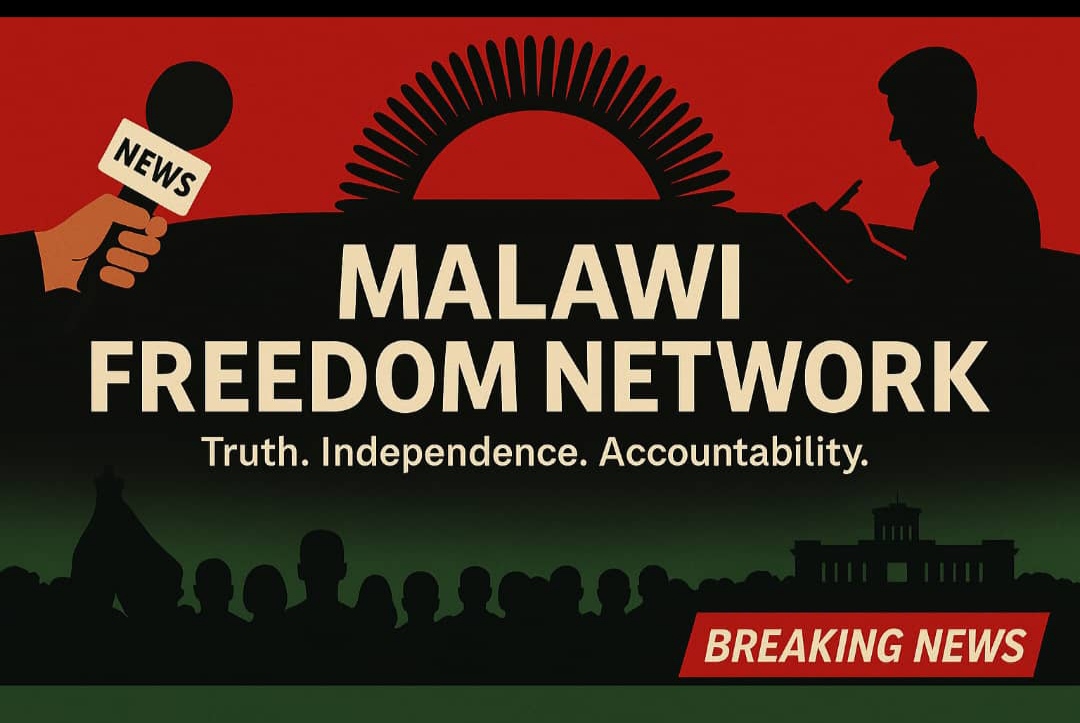By Burnett Munthali
As Malawi prepares for its 2025 general elections, the political atmosphere is increasingly characterized by deepening divisions and complex maneuvers. One such issue that has recently ignited political flames is the controversy surrounding Samuel Thom Mutharika, who has emerged as a self-proclaimed sibling of the late President Bingu wa Mutharika and current DPP leader, Professor Arthur Peter Mutharika. His claims have triggered a sharp response from the DPP, calling his actions deceitful and accusing him of identity fraud.
The question at the heart of the controversy is whether the matter should be addressed solely by the Mutharika family or whether the DPP is justified in stepping in and making strong statements on behalf of the family. This issue has significant political, ethical, and personal dimensions that warrant a deeper analysis.
The Mutharika family’s role in the controversy
At its core, the dispute revolves around Samuel Thom Mutharika’s claims of being part of the Mutharika family. Given that his assertions are contested by the DPP, it could be seen as a family matter that primarily concerns the Mutharikas themselves. The Mutharika family, given its prominent role in Malawi’s political history, could be expected to take the lead in addressing the authenticity of Thom’s claims.
The Mutharika family’s involvement in the resolution of this matter would ensure a direct response to the accusations of identity fraud, without the mediation of political entities. Additionally, if Thom’s claims are proven false, it could avoid further politicizing what could have been a personal or familial issue, helping to protect the integrity of the family’s legacy.
However, this does not mean that the DPP should remain silent on the matter. The Mutharika family, despite its political ties, has distinct personal interests and a legacy to protect, and the family’s internal resolution of the issue may not necessarily be enough to address the broader political ramifications.
DPP’s political perspective on the matter
While the controversy is rooted in questions about the Mutharika family’s history, the DPP’s strong response to Samuel Thom Mutharika’s claims underscores the political stakes involved. The Mutharika name carries significant weight within the DPP, and any attempt to manipulate it could have serious consequences for the party’s identity and credibility, especially as the party prepares for a highly contested election.
The DPP’s National Publicity Secretary, Shadric Namalomba, emphasized that the Mutharika name should not be exploited for political advantage, especially by the MCP, which the DPP accuses of using the controversy to advance its political interests. From a party-political perspective, the DPP’s stance makes sense: it is not only protecting the Mutharika family’s legacy but also ensuring that its leadership remains unchallenged and intact as it faces the upcoming election.
By stepping into the debate, the DPP has effectively framed the issue as a matter of political integrity rather than just family heritage. This is especially important as the country approaches elections, where the manipulation of public perception could tip the scale in favor of one party or another.
Should the Mutharika family address the issue?
While the DPP has made a public declaration, it could be argued that the matter might have been better addressed by the Mutharika family directly. Given that Samuel Thom Mutharika’s claims involve his alleged familial ties, it is, at its core, a matter of personal identity that could be resolved within the family. If the family chooses to take legal action or issue a statement, it could provide clarity on the matter and potentially end the controversy, which in turn would defuse any political exploitation.
However, the involvement of political parties in personal disputes is not unusual, especially in Malawi’s competitive and polarized political landscape. The Mutharika family, especially with its connection to the DPP, may not be able to extricate itself fully from the party’s political agenda. With the country’s political tensions running high, and the 2025 elections approaching, the family’s response—whether through legal action, a public statement, or even disavowing Samuel Thom—could have significant implications for the DPP’s chances in the elections.
Political manipulation and the MCP’s role
The DPP’s statement is not only aimed at Samuel Thom Mutharika but also accuses the MCP of manipulating the situation for political gain. According to the DPP, the ruling party is attempting to exploit the Mutharika name to shore up its declining popularity ahead of the elections. This raises broader concerns about the use of divisive and deceitful tactics in Malawian politics.
It is important to note that the MCP, despite the DPP’s accusations, has not yet responded to the claims. However, if the MCP is indeed attempting to use the Mutharika name to bolster its own fortunes, the political ramifications could be serious. In this context, the DPP is not merely defending the Mutharika family but also positioning itself as the true inheritor of the Mutharika legacy, which could play a pivotal role in rallying voter support as the election nears.
Conclusion: A matter beyond the Mutharika family?
The controversy surrounding Samuel Thom Mutharika’s claims has evolved beyond a family dispute into a highly politicized matter. The DPP, given its deep connection to the Mutharika family, is rightfully invested in defending its legacy, as the party prepares for the 2025 elections. However, the issue would likely be better addressed if the Mutharika family took the lead in resolving the claims, as this could separate the matter from the political battle that is already intensifying in the lead-up to the elections.
As the controversy continues to unfold, it remains to be seen whether the Mutharika family will step in directly or allow the DPP to take full ownership of the situation. Regardless, the DPP’s response is emblematic of the larger struggle for political control in Malawi, with each party maneuvering for an advantage in the tightly contested political arena.




